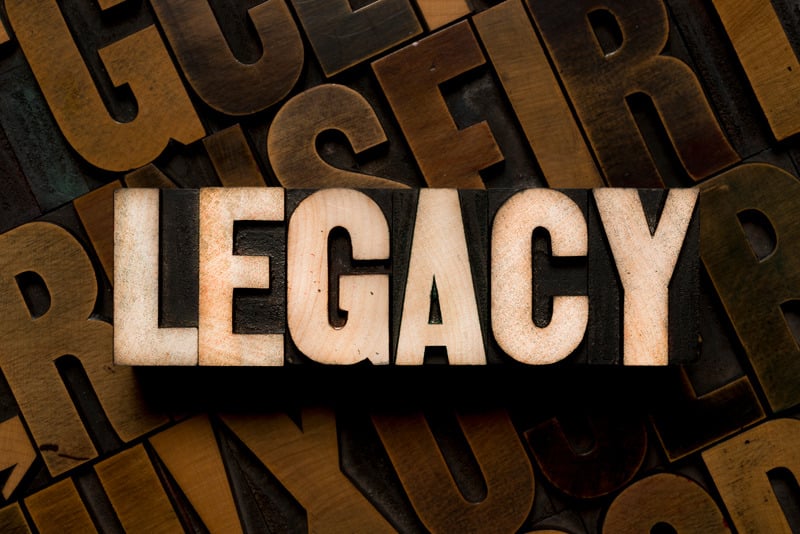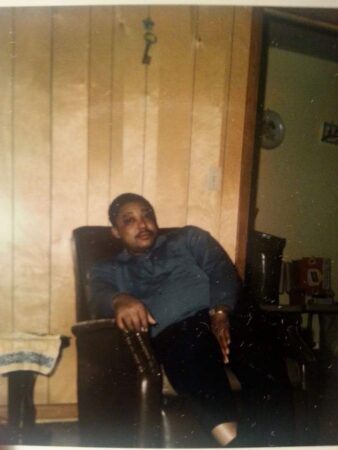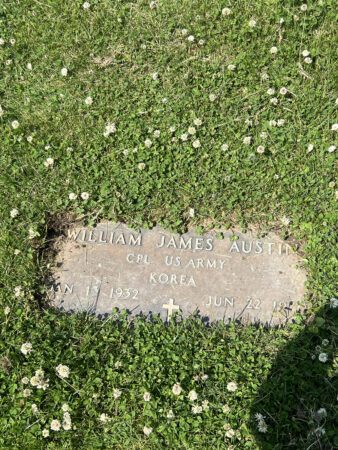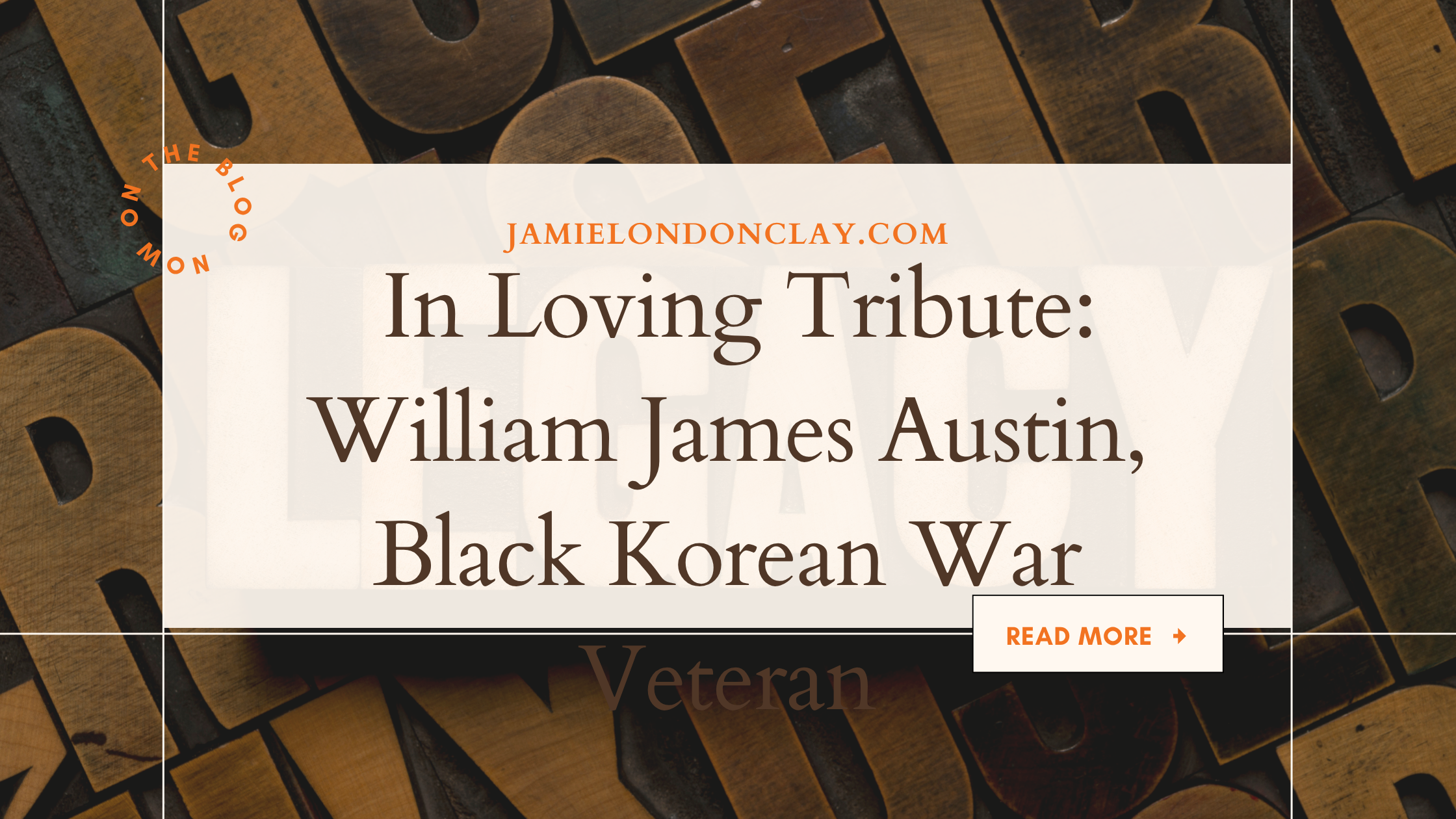
🌟 In Loving Tribute: William James Austin, Black Korean War Veteran
Honoring a Man of Quiet Bravery
While burying my grandmother on 6/9/2025, I stood at the resting place of my grandfather—my Dad’s

dad—William James Austin, a man I’d never met but whose courage echoes across time. Private Austin served in the Korean War (1950–1953), stepping into a brutal conflict that altered the course of modern history. Though often called “The Forgotten War,” Korea was America’s first major Cold War showdown—demanding immense resilience from soldiers such as William. His sacrifice reminds me that legacy is built in quiet service, not headlines.
Witness to Frozen Fronts and Fierce Fire
I can only imagine the icy winters, steep mountain battles, and emotional toll he endured. Over 1.8 million Americans served; more than 36,000 died. The war ended in a stalemate—roughly along the 38th parallel — but it cemented the division of Korea and the ideological divide that still stands today.
A Legacy of Courage and Service
William James Austin represents a generation of soldiers who fought for democracy abroad, even as they faced segregation and inequality at home. His story is not just his own—a symbol of collective courage, dignity, and hope that resonates through his family and empowers Black Americans through legacy and economic resilience.
🕊️ Legacy Tribute: Resting in Sacred Ground
My grandfather is laid to rest at Restvale Cemetery in Alsip, Illinois—a place of deep historical and

spiritual significance. More than just a cemetery, Restvale is hallowed ground. It was one of the few sanctuaries during the segregation era that welcomed Black families when others would not.
Founded in 1927, Restvale became a safe harbor for our people in death, just as we had to fight for dignity in life. In a time when racism sought to separate even the deceased, Restvale stood as a quiet act of resistance—a place built by us, for us, with honor and care.
To know that my grandparents rest among pioneers, veterans, musicians, healers, and everyday heroes is to know that they are part of a legacy greater than any one name. Their presence at Restvale is not an end, but a continuation of a sacred lineage—of strength, resilience, and cultural pride.
They are buried not in obscurity, but in a cemetery that remembers. In soil that holds soul. On grounds where blues legends, community leaders, and generations of Black excellence have found peace.
Their names belong to history. And I will not let them be forgotten.
🎶 Cultural & Musical Legacy
- Restvale holds the graves of over 30 major blues and jazz artists, including legends like Muddy Waters, Willie “Big Eyes” Smith, Earl Hooker, Magic Sam, and Hound Dog Taylor, making it a landmark of Chicago blues history.
- Its cultural importance is highlighted in the way the blues community—fans and musicians—still honors the site; even the Rolling Stones have reportedly visited Muddy Waters’s gravesite in tribute .
⚖️ Community & Historical Significance
- As a historically Black cemetery, Restvale reflects the migration and establishment of Chicago’s African‑American population in the early 20th century.
- It sits within a cluster of notable cemeteries—including Burr Oak and Holy Sepulchre—that collectively map important narratives of community, race, and heritage in Alsip and the broader Chicago area
✨ Why It Matters That My Grandparents Are There
My grandparents being buried at Restvale means they are a part of this legacy of honor and strength. Their resting place stands in solidarity with artists, veterans, elders, and pioneers who refused to be erased, even by unjust laws. Their burial at Restvale is not only personal — it’s historic.
🗂️ Researching Black Korean War Veterans Service Records
To learn more about Black Korean War Veteran’s official military service:
- National Archives (NPRC in St. Louis)
- Most service files (called OMPFs) for Korea-era veterans are housed here.
- Request via GSA Standard Form 180 or using eVetRecs online
- What You’ll Likely Find
- Potential Hurdles
- A 1973 NPRC fire destroyed many records, but alternate documents (e.g., unit logs and casualty lists) often help.
- Next Steps Checklist
- Complete SF‑180 (estimate dates if unknown).
- Provide proof of kinship (e.g., death certificate).
- Submit by mail or via eVetRecs, then allow time for processing.
💪 Stories of Black Veterans in the Korean War
William was part of a larger legacy: Black soldiers whose courage increasingly shaped both military and social change.
1. A Timeline of Breaking Barriers
- The Korean War saw ~600,000 African American servicemen—about 9.3% of US fatalities.
- President Truman’s Executive Order 9981 (1948) initiated military desegregation—but in 1950, many units remained all-Black.
2. Valor Under Racism
- The 24th Infantry Regiment—an all-Black unit—fought fiercely despite heavy casualties and experienced tragic mistreatment (even friendly fire).
- Heroic Black soldiers were awarded the Medal of Honor; Pvt. William H. Thompson and Cpl. Cornelius Charlton was among the first Black soldiers honored in Korea.
3. Voices of Black Veterans
- Charles Rangel fought in Korea and returned home as a Congressman and a civil rights advocate, signalizing how war forged leaders.
- Lt. Col. George Hardy flew bomber missions in Korea after serving with the famed Tuskegee Airmen, representing a legacy of excellence.
- Some, like 1LT Leon Gilbert of the 24th Infantry, faced severe racism and legal battles when they refused orders amid unlivable conditions—his case sparked national attention on military integration.
4. Remembering Forgotten Narratives
- Works like “Twice Forgotten“ and “Firefight at Yechon“ share firsthand stories of Black soldiers facing racism in battle and seeking recognition afterward.
- The Korean War Legacy Foundation preserves oral histories of veterans like Victor Burdette Spaulding and Congressman Rangel.
🌱 Why This Matters To Me.
Meeting my grandfather through his legacy is more than just a family moment—it’s a reconnection to strength, duty, and dignity that runs in my blood. He fought in a battle that helped shape the modern world. And now, as a storyteller, artist, and leader, I am carrying that legacy forward in my battle for truth, healing, and freedom.
🌅 In Closing
William James Austin lived and served during a pivotal moment—the first Cold War battlefield. His contributions, alongside many Black soldiers, shifted both military culture and society’s moral compass. Honoring his life deepens our collective memory and ensures the bravery of unseen veterans is never forgotten.
